At least 45 people were arrested and a curfew briefly imposed in most parts of Colombo city after hundreds of protesters gathered outside the residence of Sri Lankan President Gotabaya Rajapaksa demanding his resignation for failing to address the worst economic crisis in the island nation.
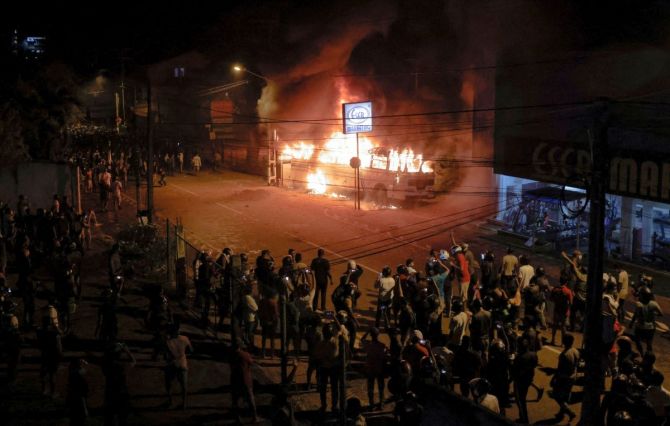
A foreign exchange crunch in Sri Lanka has led to a shortage of essential goods such as fuel. cooking gas, and power cuts that last up to 13 hours a day.
On Thursday protesters shouted slogans, directing their ire against what they perceive as the Rajapaksa regime's gross mismanagement that has exacerbated Sri Lanka's foreign-exchange woes.
They also demanded President Rajapaksa's resignation.
According to the police, in the protest several, including five policemen, were injured while vehicles were set on fire as a spontaneous expression of public anger over the current economic crisis turned violent.
"As of now 45 people have been arrested. Five policemen were injured while a police bus, a Jeep and two motorcycles were burnt. The protesters had also caused damage to a police water cannon truck," a senior police official said.
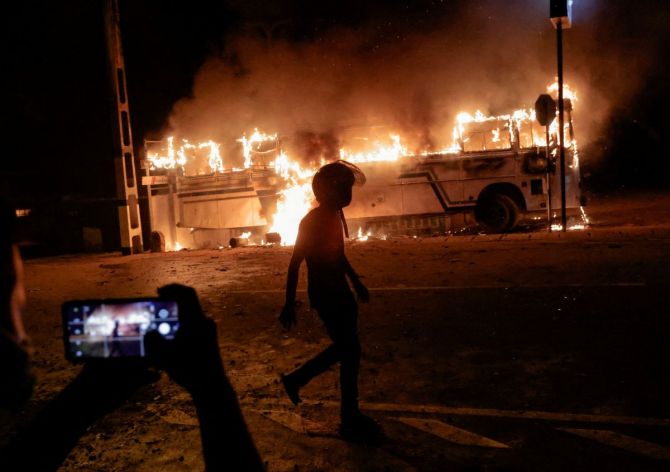
Protestors shouted slogans, directing their ire against what they perceive as the Rajapaksa regime's gross mismanagement that has exacerbated Sri Lanka's foreign-exchange woes.
“No petrol, no gas, no milk powder, no electricity”, “Go home Gota”, placard carrying protestors were then seen walking towards the Rajapaksa private residence in Colombo at Pangiriwatte Lane.
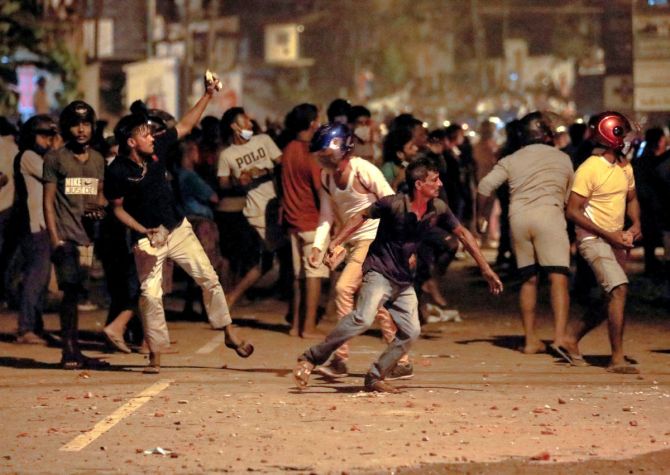
A curfew was imposed at midnight on Thursday covering most parts of the Colombo district and the suburban police division of Kelaniya but was lifted at 5 am on Friday morning.
In the Kelaniya area, protesters had blocked the main Colombo-Kandy road.
Sri Lanka is currently experiencing its worst economic crisis in history.
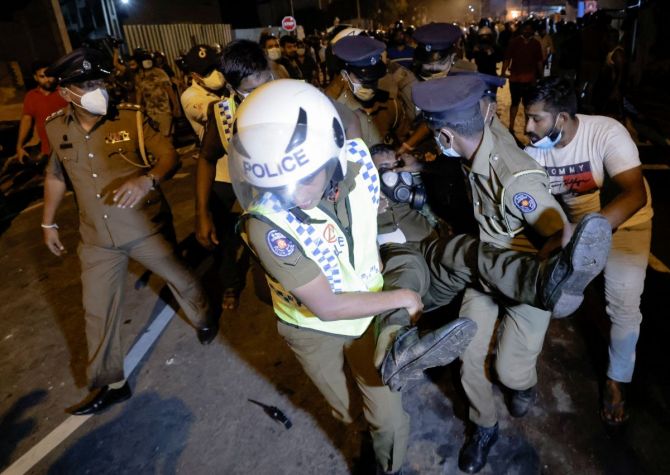
With long lines for fuel, cooking gas, essentials in short supply and long hours of power cuts the public has been suffering for weeks.
Rajapaksa has defended his government's actions, saying the foreign exchange crisis was not his making and the economic downturn was largely pandemic driven where the island's tourism revenue and inward remittances waning.











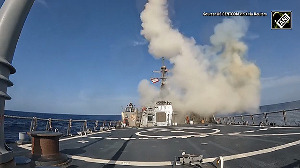
 © 2025
© 2025